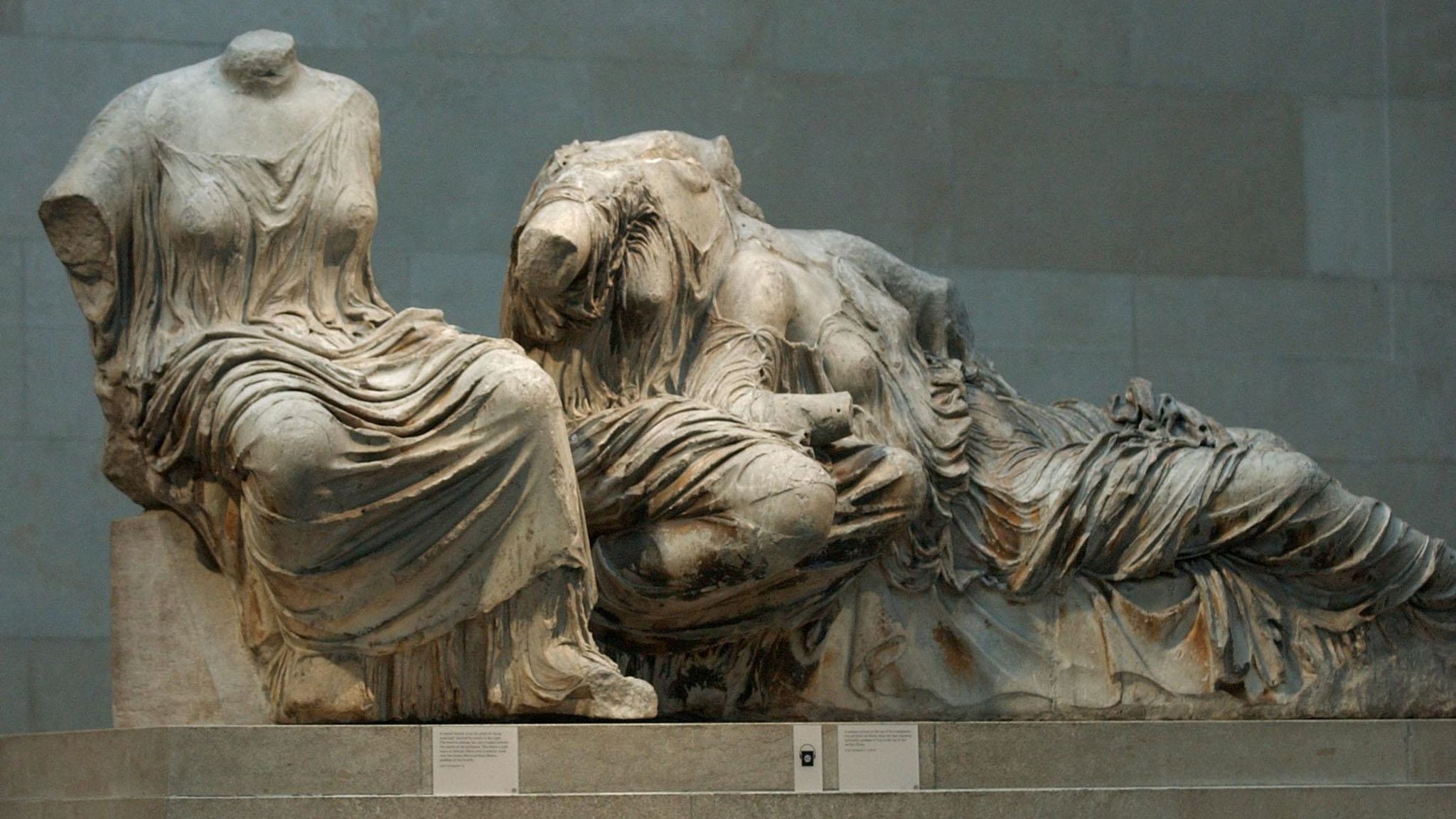
Greece’s Culture Minister Lina Mendoni stated that the country is willing to part with some of its greatest assets in order to “fill the void” left by the Parthenon marble in the British Museum. Mendoni swore to the Guardian at the conclusion of the year, which marked the completion of their battle to retrieve the fifth-century BC treasures, that the revered Greek galleries of London institution would never be empty. “Our stance is unequivocal. If the sculptures are returned to Athens, Greece is ready to organize rotating exhibitions of great antiquities to fill the hole,” she remarked.
Speaking about any specific works demanded by London, the minister, a classical archaeologist, stated that conversations between the two countries have not extended to “specific artefacts.” However, the minister revealed for the first time how much Athens was willing to compensate the British Museum in exchange for the statues, considered a high point of art in the classical period, adding that any antiquities delivered to the UK would also get a lot of attention. “[They] would fill the void, maintain, and constantly renew, international visitor interest in the Greek galleries of the British Museum,” said Mendoni, although she cautioned that “any agreement and all its particulars, would have to be in accordance with the Greek law on cultural heritage”.
Lord Elgin had the marble removed from the Parthenon temple
Although the cultural exchange plan was proposed after Greece Prime Minister Kyriakos Mitsotakis’ centre-right New Democracy party took power in 2019, there have been speculations that treasures such as Agamemnon’s Mask – the gold funerary mask dubbed the “Mona Lisa of prehistory” by some historians – will be sent to Britain in exchange for the marbles. Currently, the two parties are talking about “a partnership” that can bring a “win-win” solution to the dispute. While speaking about Athens’ efforts to reassemble the marble, British Museum chair George Osborne sounded more committed to addressing the matter than any of his predecessors.
He is the first museum chairperson to publicly address the debate surrounding the presence of antiquities in the British Museum. The marbles were purchased by the museum in 1816 from a bankrupt Lord Elgin, a former ambassador to the Ottoman Empire. Lord Elgin had the marble removed from the Parthenon temple and other locations on Athens’ Acropolis using marble saws.
This year, the former chancellor has signaled several times that a compromise solution is inevitable. “We want to create a proper partnership,” Osborne said in October to MPs on the culture, media, and sport committee. “[One] that would mean objects from Greece coming here, objects that have potentially never left Greece before and certainly never been seen before, and objects from the Parthenon collection potentially travelling to Greece,” he added.






